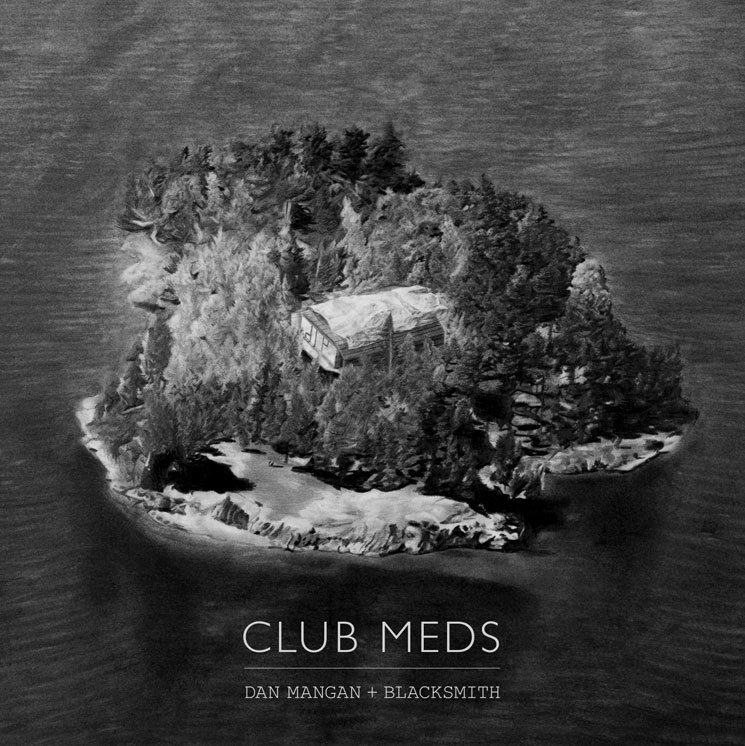By Martin Castro (Contributor) – Email
Print Edition: February 4, 2015
Dan Mangan’s recently released album Club Meds sees the Canadian singer-songwriter stray away from his delightfully simple folk roots and into darker, moodier territory. This record is a departure for Mangan in that it employs more full-band arrangements, as opposed to the layered acoustic guitars of Mangan’s previous work.
There’s a lot of reverb used throughout this record, and although Mangan could have very easily overdone it, here it’s done tastefully. The extra space adds to the mood that Mangan is shooting for here. “Offred” is more electronic than most of Mangan’s previous work, however, it still has a very moody quality to it, which plays off well with Mangan’s crooning and his gruff tone of voice.
“Mouthpiece” is as close to pure folk as we get to on this record — it’s all strummed guitars and snare. There’s an electric guitar being picked in the background throughout most of the song, apart from the chorus, which is a lot more rock ’n’ roll than folk. Mangan’s departing from his roots, but in a way that really shows his breadth as an artist, and makes for an enjoyable listen.
“Kitsch” became one of my favourite tracks as soon as I heard it. It’s full of thick, pronounced reverb, as well as crashing symbols in the background, as Mangan croons; it’s sombre, but there’s a lot of energy behind “Kitsch” which drives it forward.
In “XVI,” Mangan gives us a silky blues track that sneaks its way quietly before entrancing the listener for some three minutes. Mangan’s lyricism comes through particularly on this track, if only because of his poignancy. It’s one of the most rewarding tracks on the whole project, even including a soothing horn and string section.
“War Spoils” is literally three minutes of reverb and echoing vocals over some sparse, not-quite distorted instrumentals. My guess is this is as close as Mangan is going to come to channeling his inner Roger Waters, and that’s just fine, as the track actually does a great job of instilling in the listener a feeling of familiar unease, which ties in well with the aesthetic of Club Meds.
“Forgetery” is perhaps the most commercial track on the record, but that doesn’t detract from its value at all. It’s more or less straightforward folk, although it’s spruced up with Mangan’s newfound backing band, Blacksmith. Reminiscent of Nick Cave and the Bad Seeds, “Forgetery” calls back to some of Mangan’s earlier work, acting as a bridge between his previous folk and this new incarnation.
The last three tracks on the record all deserve praise, particularly because they tie the project off in a neat and memorable fashion. This is perhaps doubly impressive when one considers the fact that this record could have been an amorphous mass of sonic anonymity; thanks to Mangan’s ability to take a (somewhat risky) new direction and run with it, however, Club Meds shaped up to be one of the most enjoyable projects from the artist yet.


